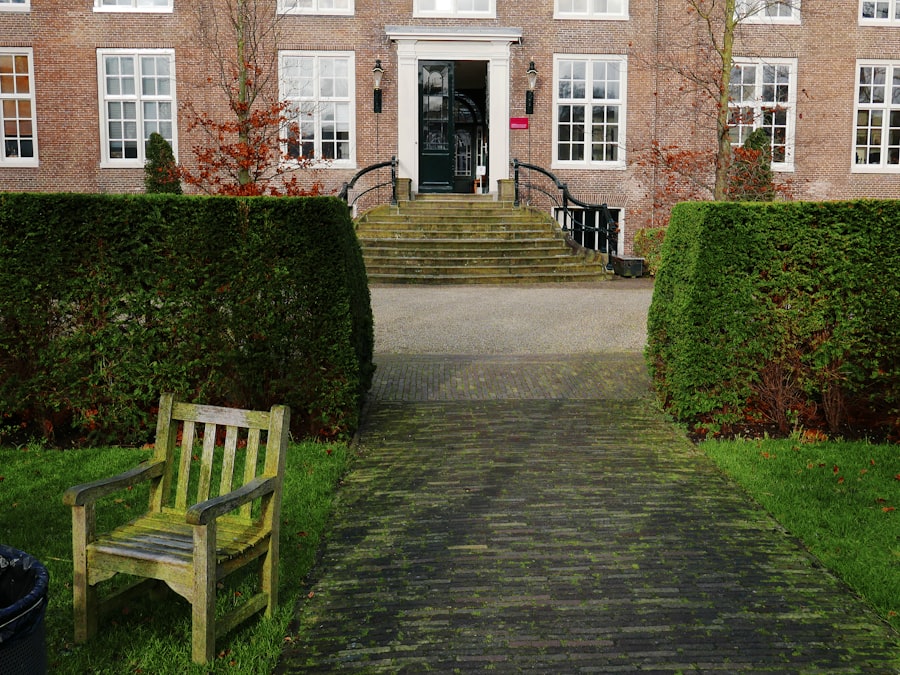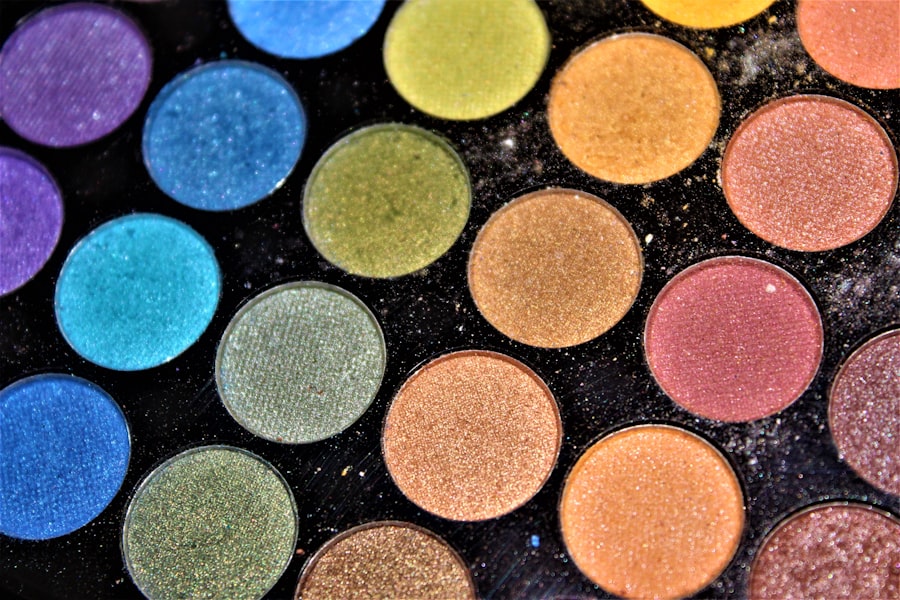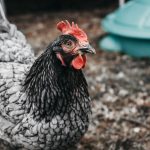Heat stress in chickens is a significant concern, particularly during hot summer months. Chicken owners must be able to identify signs of heat stress in their flock to take appropriate action and maintain the birds’ comfort and well-being. Common indicators of heat stress include panting, wings held away from the body, reduced egg production, lethargy, and decreased appetite.
In severe cases, chickens may experience diarrhea, pale combs and wattles, and seizures. Vigilant observation of flock behavior and physical condition during hot weather is crucial, as early detection of heat stress can significantly impact the birds’ health. Chickens are particularly vulnerable to heat stress due to their lack of sweat glands, relying instead on panting and seeking shade to regulate body temperature.
Recognizing heat stress symptoms is essential for preventing serious health issues and potential fatalities in chicken flocks. By understanding these signs, chicken owners can implement proactive measures to ensure their birds remain safe and comfortable during periods of extreme heat. This knowledge enables owners to provide the necessary care and attention to maintain a healthy and thriving flock, even in challenging weather conditions.
Table of Contents
- 1 Providing adequate shade and ventilation for your coop
- 2 Offering cool treats and frozen treats to your chickens
- 3 Keeping their water supply cool and refreshing
- 4 Creating a dust bath area for your chickens to cool off
- 5 Adjusting feeding times to avoid the hottest part of the day
- 6 Monitoring your chickens closely during heat waves and extreme temperatures
- 7 FAQs
Key Takeaways
- Panting, holding wings away from body, and reduced egg production are signs of heat stress in chickens
- Ensure adequate shade and ventilation in the coop to prevent heat buildup
- Offer cool treats like watermelon and frozen treats like ice cubes to help chickens cool down
- Keep water supply cool and refreshing by adding ice or using shaded water containers
- Create a dust bath area for chickens to cool off and regulate their body temperature
- Adjust feeding times to early morning or late evening to avoid the hottest part of the day
- Monitor chickens closely during heat waves and extreme temperatures for signs of distress
Providing adequate shade and ventilation for your coop
Shade and Ventilation: The Key to a Cooler Coop
One of the most important steps in preventing heat stress in chickens is to provide adequate shade and ventilation for their coop. This can be achieved by positioning the coop in a shaded area, using reflective roofing materials to reduce heat absorption, and ensuring that there are plenty of windows or vents to allow for air circulation. Additionally, adding shade cloth or planting trees near the coop can help create a cooler environment for the chickens.
Orienting the Coop for Optimal Comfort
It’s also important to consider the orientation of the coop – positioning it so that it receives the least amount of direct sunlight during the hottest part of the day can make a significant difference in the temperature inside the coop.
Ensuring Proper Ventilation
In addition to providing shade, ensuring proper ventilation is crucial for keeping chickens cool during hot weather. Good airflow helps to remove stale air and reduce the build-up of heat and moisture inside the coop. This can be achieved by installing vents or windows that can be opened and closed as needed to regulate airflow. It’s also important to keep bedding materials clean and dry, as damp bedding can contribute to higher humidity levels inside the coop.
By providing adequate shade and ventilation for your coop, you can create a more comfortable environment for your chickens and reduce the risk of heat stress.
Offering cool treats and frozen treats to your chickens

Another effective way to help chickens beat the heat is by offering them cool treats and frozen treats. This not only provides them with a refreshing snack but also helps lower their body temperature. Some cool treats that chickens enjoy include watermelon, cucumbers, and lettuce.
These fruits and vegetables have high water content, which can help keep chickens hydrated and cool. Additionally, freezing these treats before offering them to the chickens can provide extra relief from the heat. Frozen treats such as berries, peas, or corn can also be a fun and cooling snack for chickens during hot weather.
In addition to fruits and vegetables, frozen treats such as ice blocks or frozen yogurt can be a great way to help chickens cool down. These treats can be placed in the coop or run for the chickens to peck at, providing them with a fun and refreshing way to beat the heat. Offering cool treats and frozen treats to your chickens not only helps keep them cool but also provides them with enrichment and entertainment during hot weather.
It’s important to remember that these treats should be offered in moderation and as part of a balanced diet to ensure that the chickens receive all the necessary nutrients.
Keeping their water supply cool and refreshing
During hot weather, it’s crucial to keep your chickens’ water supply cool and refreshing to help them stay hydrated and regulate their body temperature. This can be achieved by providing multiple water sources throughout the coop and run area, ensuring that there is always access to clean and cool water. Adding ice cubes or frozen water bottles to their waterers can also help lower the temperature of the water and provide relief from the heat.
Additionally, placing waterers in shaded areas can help prevent them from heating up quickly in the sun. Regularly cleaning and refreshing the water supply is essential for maintaining good water quality for your chickens. Algae growth and bacterial contamination can occur more rapidly in hot weather, so it’s important to clean waterers frequently and provide fresh water daily.
Keeping their water supply cool and refreshing not only helps prevent dehydration but also encourages chickens to drink more water, which is essential for maintaining their overall health during hot weather.
Creating a dust bath area for your chickens to cool off
Dust bathing is a natural behavior for chickens, and it also serves as a way for them to cool off during hot weather. Creating a designated dust bath area in the coop or run allows chickens to indulge in this behavior while also helping them stay cool. A dust bath area can be filled with fine sand, diatomaceous earth, or wood ash, which helps absorb excess moisture from their feathers and skin.
This not only helps keep chickens clean but also provides them with a cooling sensation as they fluff their feathers and roll around in the dust. In addition to providing a dust bath area, it’s important to ensure that it is located in a shaded spot to prevent it from becoming too hot during the day. Adding a cover or roof over the dust bath area can help create a cooler environment for the chickens to enjoy their dust baths without being exposed to direct sunlight.
By creating a dust bath area for your chickens to cool off, you are not only promoting their natural behavior but also providing them with a way to beat the heat and stay comfortable during hot weather.
Adjusting feeding times to avoid the hottest part of the day

Timing is Everything
During periods of extreme heat, it’s beneficial to adjust feeding times for your chickens to avoid the hottest part of the day. Feeding them early in the morning or later in the evening when temperatures are cooler can help reduce their metabolic heat production and prevent them from feeling overheated while digesting their food. Additionally, providing smaller meals throughout the day instead of one large meal can help prevent excessive heat generation from digestion.
Choosing the Right Feed
It’s also important to consider the type of feed you offer your chickens during hot weather. Feeding them high-protein or high-energy feeds can increase their metabolic heat production, so it may be beneficial to switch to lighter feeds with lower protein content during periods of extreme heat. Ensuring that feeders are placed in shaded areas can also help prevent feed from spoiling or becoming too hot for consumption.
Reducing the Risk of Heat Stress
By adjusting feeding times and offering appropriate feeds, you can help reduce the risk of heat stress in your flock during hot weather.
Monitoring your chickens closely during heat waves and extreme temperatures
During heat waves and periods of extreme temperatures, it’s crucial to monitor your chickens closely for any signs of heat stress or discomfort. This includes observing their behavior, checking their physical condition, and ensuring that they have access to all necessary resources such as shade, water, and cooling treats. Regularly checking on your flock throughout the day allows you to identify any potential issues early on and take immediate action to help them stay cool and comfortable.
In addition to regular monitoring, it’s important to have a plan in place for dealing with extreme heat events. This may include setting up additional shade structures, increasing ventilation in the coop, or providing extra cooling treats and frozen treats for your chickens. Being prepared for extreme temperatures allows you to respond quickly and effectively to ensure the well-being of your flock during hot weather.
By monitoring your chickens closely during heat waves and extreme temperatures, you can take proactive measures to keep them safe and healthy even in challenging weather conditions. In conclusion, understanding how to recognize signs of heat stress in chickens is crucial for preventing serious health issues in your flock. Providing adequate shade and ventilation for your coop, offering cool treats and frozen treats, keeping their water supply cool and refreshing, creating a dust bath area for them to cool off, adjusting feeding times, and monitoring them closely during heat waves are all essential steps in helping your chickens beat the heat.
By being proactive and attentive to their needs during hot weather, you can ensure that your flock stays healthy, comfortable, and happy all year round.
If you’re looking for ways to keep your chickens cool in the heat, you may also be interested in learning about the best coop options for your flock. Check out this article on A-Frame Chicken Coop to find out more about a popular and practical housing option for your chickens.
FAQs
What are the signs of heat stress in chickens?
Signs of heat stress in chickens include panting, holding their wings away from their bodies, decreased egg production, lethargy, and loss of appetite.
How can I keep my chickens cool in hot weather?
You can keep your chickens cool in hot weather by providing plenty of shade, ensuring good ventilation in the coop, offering cool water to drink, and providing frozen treats such as fruits and vegetables.
What are some ways to provide shade for chickens?
You can provide shade for chickens by using tarps or shade cloths to cover their coop and run, planting trees or shrubs to create natural shade, and using umbrellas or awnings in their outdoor areas.
How can I improve ventilation in my chicken coop?
You can improve ventilation in your chicken coop by installing windows or vents to allow for air flow, using fans to circulate air, and keeping the coop clean to prevent ammonia buildup, which can affect air quality.
What should I do if I suspect my chickens are suffering from heat stress?
If you suspect your chickens are suffering from heat stress, move them to a cooler area, provide them with cool water to drink, and offer them frozen treats to help lower their body temperature. If the symptoms persist, consult a veterinarian for further advice.
Meet Walter, the feathered-friend fanatic of Florida! Nestled in the sunshine state, Walter struts through life with his feathered companions, clucking his way to happiness. With a coop that’s fancier than a five-star hotel, he’s the Don Juan of the chicken world. When he’s not teaching his hens to do the cha-cha, you’ll find him in a heated debate with his prized rooster, Sir Clucks-a-Lot. Walter’s poultry passion is no yolk; he’s the sunny-side-up guy you never knew you needed in your flock of friends!







